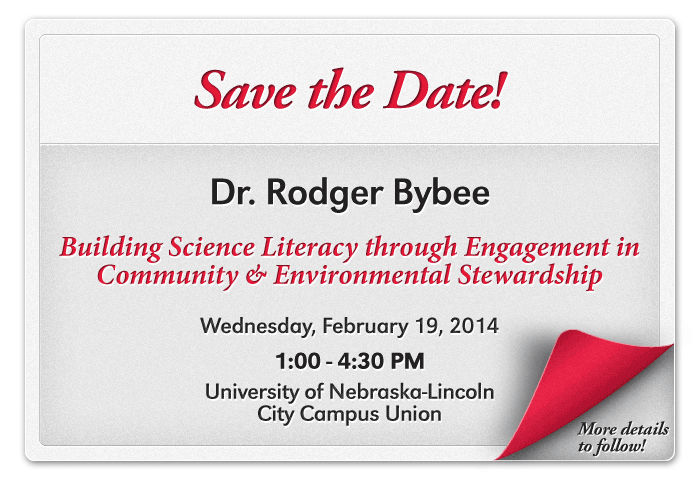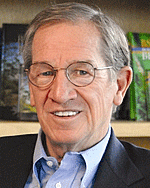

The University of Nebraska-Lincoln cordially invites you to attend "Building Science Literacy through Engagement in Community and Environmental Stewardship," a Feb. 19 presentation from Dr. Rodger Bybee on science education initiatives that emphasize the effective management of food, water and natural resources. Bybee will introduce strategies for strengthening science literacy, improving PK-12 instruction, and enhancing family engagement in science learning among children and youth. Participatory spotlight sessions preceding the presentation will give attendees the opportunity to discuss informal science education, early childhood education, the role of rural family-school partnerships, and more.
As part of the Big Idea Seminar Series, this presentation is co-sponsored by the Institute of Agriculture and Natural Resources; Department of Child, Youth and Family Studies; College of Education and Human Sciences; Nebraska Center for Research on Children, Youth, Families and Schools; and UNL Extension.
More details will follow in the next week. We look forward to seeing you Feb. 19!
Dr. Rodger Bybee
|
Rodger Bybee chairs the Science Forum and Science Expert Group for the Next Generation Science Standards. From 1999 to 2007, Bybee served as executive director of the Biological Sciences Curriculum Study (BSCS), where he was principal investigator for four National Science Foundation programs. Prior to joining BSCS, he worked as executive director of the National Research Council's Center for Science, Mathematics and Engineering Education (CSMEE). Bybee has also served on advisory boards and committees for the National Academies, the U.S. Department of Education, the National Science Foundation and the American Institute of Biological Sciences. Bybee's primary professional interests have included scientific literacy, scientific inquiry, the design and development of school science curriculum, the role of policy in science education, and international assessments. He holds a doctorate from New York University and earned his master's and bachelor's degrees from the University of Northern Colorado. |

